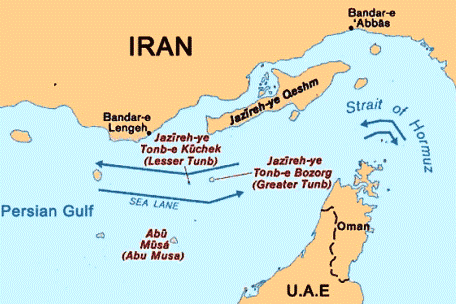Let’s Not Play in the West’s Court

Since its establishment in 1979, the Islamic Republic of Iran has been targeted with sanctions by several countries, particularly the Unites States. However, in recent years, especially after referring the Iranian nuclear dossier to the Security Council which was followed by the Council’s issuance of four resolutions against Iran, West has adapted to unprecedented measures of significant severity.
Sanctions, including the ones imposed by the United Nations as well as the ones imposed unilaterally by the US and its allies against Iran, serve three functions:
Firstly to cause delays in order to disrupt the country’s political, economic, military and technological achievements. In the lucrative South Pars oil and gas field for instance, as a result of sanctions Iran loses 25 billion USD per annum to Qatar, since unable to compete on equal grounds, technologically and in terms of investment. Furthermore, based on the Second Five Year Development Plan, Iran’s petrochemical exports were expected to reach 50 billion USD in worth, where only they have reached 10 billion USD.
Second is to attenuate Iran's infrastructure. This slump is now evident in all aspects, from a lower development rate in the oil industry to a reduced tendency of students to study in nuclear technology fields. Though there may be no immediate sense of the pressure, the gradual decline process will show its sever impact at some point in the future. Iranian officials should take this decline into account.
Thirdly is the closure effect: depending on the country’s degree of dependency to foreign sources in a certain activity, should sanctions be imposed by those sources, activities come to an abrupt halt. This third affect may not be tangible at the moment, but the first and second categories have already left their trace.
History testifies that the UN has never retreated from its sanctions against a country: either the country has withdrawn from its position, or developments have negated the precedent. South Africa, Iraq and Libya are amongst countries that have been subject to serious sanctions from the UN. Surely, Iran has not yet been subject to sanctions similar to Iraq or Libya; yet, regional sanctions on Iran have positioned us in our current unprecedented situation. The recent American and European sanctions on Iran in particular are ones that have rarely been imposed on any other country. The UK, for instance, has never enforced sanctions on any country’s central bank, except Iran’s.
Western sanctions on Iran are gradually evolving into embargos. Europeans have decided to ban oil purchase from Iran and made a decision to switch to Arab countries, particularly Saudi Arabia and the United Arab Emirates. Finding new customers for Iran’s oil at this point would be an arduous task, as new customers require political-stability that would ensure uninterrupted and secure oil supplies from the source. Even the existing customers’ of Iranian oil could switch to other countries that would satisfy that condition. If the West feels that it is getting the desirable results from these sanctions, it will only increase their severity.
The IAEA and UN Security Council are not able to tighten sanctions on Iran until their next scheduled meetings. For this reason, the West has engaged in a unilateral boycott of the Iranian oil. Nonetheless, Iran’s oil export to Europe is not significant and Arab countries could simply make up for Iran’s share to Europe.
How should Iran react to those measures? In response, a number of Iranian military officials as well as several MPs have threatened to close the Strait of Hormuz. It seems that those who make such statements are not aware of its consequences. Closing the Strait of Hormuz will inevitably lead to conflict even with our allies; firstly, because it is an untenable act and secondly, because it’s a violation of Oman’s sovereignty in its waters (as the country dominates the strait on its southern coast.) A large bulk of oil export traffic passes through the territorial Sea of Oman. By blocking this route Iran will trigger a conflict. Furthermore, 70 to 80 percent of oil going through this strait is headed for Asian countries like Japan, India and China with only a small percentage intended for Europe. The reaction of the Persian Gulf countries of course cannot be overlooked either and it could lead to another war of the oil tankers as experienced during the eight-year war with Iraq.

